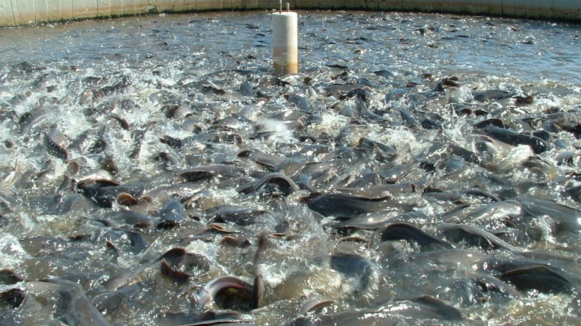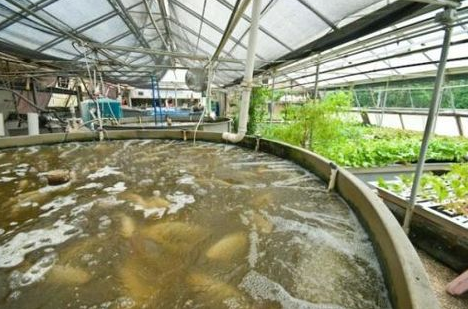Nigeria has an arable land area of 34 million hectares: 6.5 million hectares for permanent crops, and 28.6 million hectares of meadows and pastures. Agriculture accounts for about 24 percent of Nigeria’s GDP. The country is a leader in various types of agricultural production, such as palm oil, cocoa beans, pineapple, and sorghum. It is the largest producer of sorghum in the world just after the United States and ranks fifth in the production of palm oil and cocoa beans. Nigeria is also a large global exporter in this sector. Oil, fruits, nuts, and seeds are among the ten best performing export categories. Most people engage in fish farming in Nigeria as a form of occupation while others engage in it for subsistence consumption. Fish farming is the raising of specific species of fish in enclosures or special tanks.
Objectives Of Fish Farming In Nigeria
In every business there are aims and objectives the business wants to achieve, fish farming is not excluded. Most fish farmers engage in this lucrative trade in order to produce fish for consumption and export. Here are the objectives of most fish farmers in Nigeria:
- Money Making: Most fish farmers engage in fishing farming in order to provide food for themselves and their families. Fish farming is seen as a lucrative occupation because a lot of fish farmers make massive profits from the sale and trade of their fish.
- Providing Economic Boost: When fishing limitations were enacted in states with robust fisheries, a number of state governments moved to mitigate the impact by offering aquaculture training programs for commercial fishermen. Because of the occupations associated with the construction and operation of a fish farm, coastal areas, in particular, may benefit from having fish farm activities in their community.
- Food Production: Fishes are normally consumed as a form of food in most places including Nigeria. Fish farmers rear these fishes in order to distribute the fish and make it available to the public for consumption purposes.
- Protecting Species: Many fishermen engage in a fishing occupation for the purpose of trading. This can lead to the extinction of a particular fish species if the fishes are over-fished. Aquaculture experts are always on the lookout for fish species that can be helped by fish farming and spared the risk of extinction.
Types Of Fish Farming In Nigeria
Cat Fish Farming

Catfish is the most reared species of fish in Nigeria. Catfish farming is the most common aquaculture industry in Nigeria due to the popularity of the fish breed. Catfish is the most popular fisheries product utilized in African meals in a variety of settings, including homes, restaurants, gatherings, hotels, and more. Because of their ease of cultivation and demand, most aquaculture producers prefer to raise catfish over other fish varieties. It is mostly raised on a local or large scale. Catfish farming includes the creation of ponds, the breeding of fingerlings, and the rearing of juveniles to maturity. As a result, people instinctively gravitate toward the fish species that are the simplest to produce.
Tilapia Fish Farming

This fish is currently Nigeria’s second most popular fish. Freshwater fish from shallow streams, ponds, rivers, and lakes are used in this fish farming operation. Tilapia are mostly freshwater fish that live in shallow streams, ponds, rivers, and lakes, with brackish water being an uncommon occurrence. They’re becoming more and more important in aquaculture systems around the world. Because these fish develop quickly and can survive high stocking densities and poor water quality, they are a profitable breed for fish farmers to raise. Tilapia is a common variety of fish grown in Nigeria. It is a warm-water fish that grows quickly and in bigger proportions than other fish. Tilapia fishes thrive in freshwater habitats such as streams, ponds, and lakes, but not in brackish water. Tilapia is a simple to grow fish that is very popular in Nigeria. It reproduces quickly and grows quickly as well.
Salmon (Mackerel) Farming

Salmons are often freshwater fish that move to the ocean and then return to freshwater to spawn. In Nigeria, they are called “Titus” and are consumed by millions of homes on a regular basis. They are caught in the wild as well as cultivated on fish farms. Salmon fish make up a large portion of the fisheries products consumed in Nigeria.
Fish Farming Setup Costs in Nigeria
How Much Will it Cost to start a fish farm in Nigeria?
Starting a fish farm in Nigeria necessitates a decent investment. The amount required to start your own fish farming will be determined by how large or tiny you want the farm to be.
In general, significant financing is required for the start-up, maintenance, medicine, and feeding of fish farms.
The estimated cost of starting a fish farm in Nigeria from the scratch is from Five Hundred Thousand Naira (N500,000) to about One Million Naira (N1000000) only depending on the scale.
Equipment and infrastructure Needed To Starting A Fish Farming Business
- Land: One of the most fundamental things, to begin with, is land. You’ll need a better location for your fish farm. Depending on your region, land may be expensive. If you already own land, you have an edge. You need about N300,000
- Pond construction: Different pond sizes are required for fish aquaculture. To begin, you will need 2 to 4 pond, each of which will cost money to build. The ponds come in a variety of sizes and shapes. We have two types of ponds: ground ponds and block ponds. The former is less expensive than the latter. You need about N400,000
- Electricity to pump water: You need to stay close to where light is constant if not you are going to spend more money on pumping and removing water from the pond
- Business plan: You must develop a business strategy. This document will also help you get money from investors and banks. You must do a comprehensive feasibility study before developing a company plan.
- Buying or hatching fingerlings: Fingerlings are those small fishes (about one to 2 weeks old) needed for breeding. You need about N50,000
- Plumbing: A good fish farm must have ponds with adequate plumbing architecture so that water can be readily pumped in and out of the ponds (inlet and outlet facility). The plumbing includes the installation of boreholes and tanks to supply and pump water into and out of the pond. You’ll need roughly N250,000 for this.
Conclusion
Fish farming can generate massive profits and can be taken as a full-time occupation. After considering the analysis above, you will be able to create a suitable budget and estimate the amount of money to set aside for the start-up.
